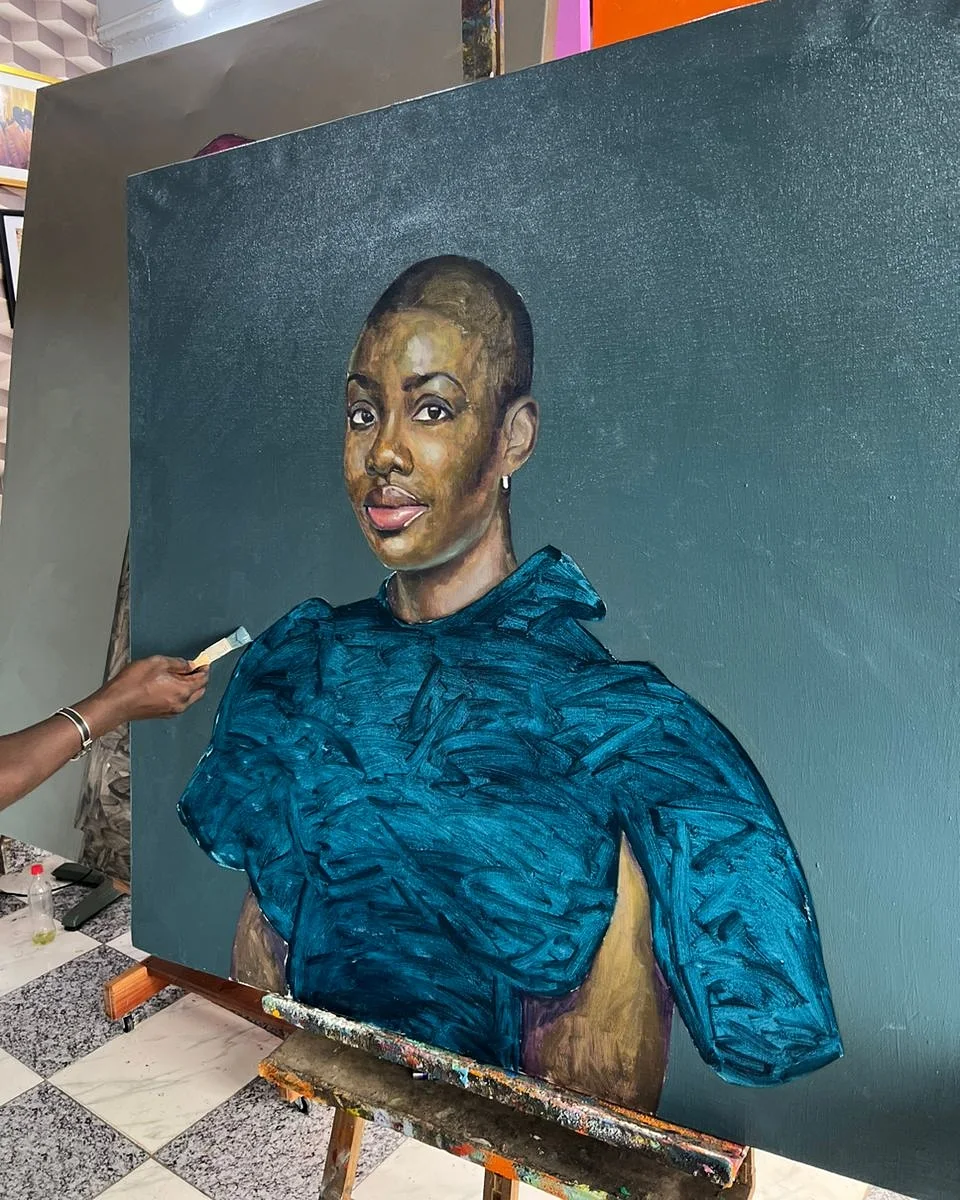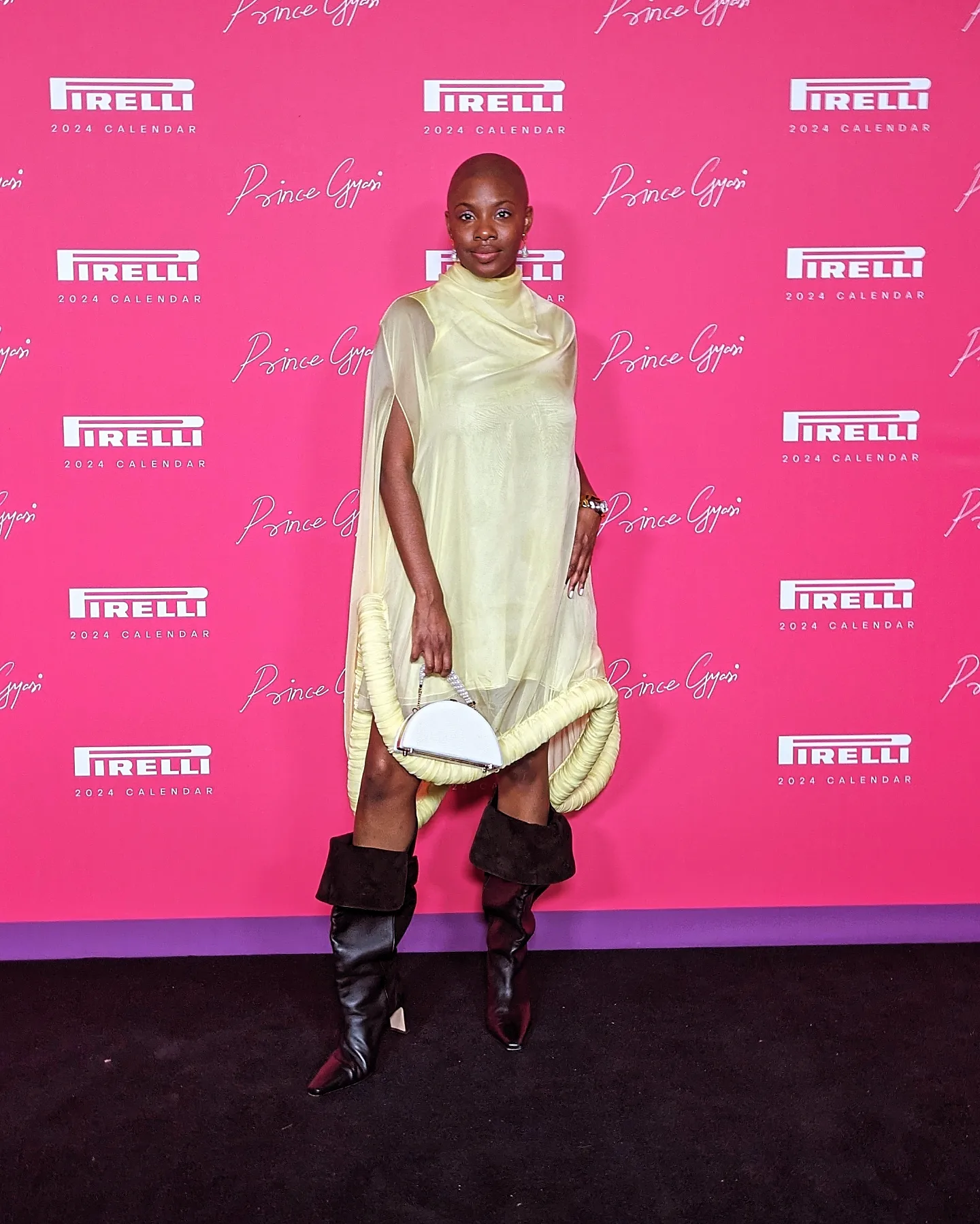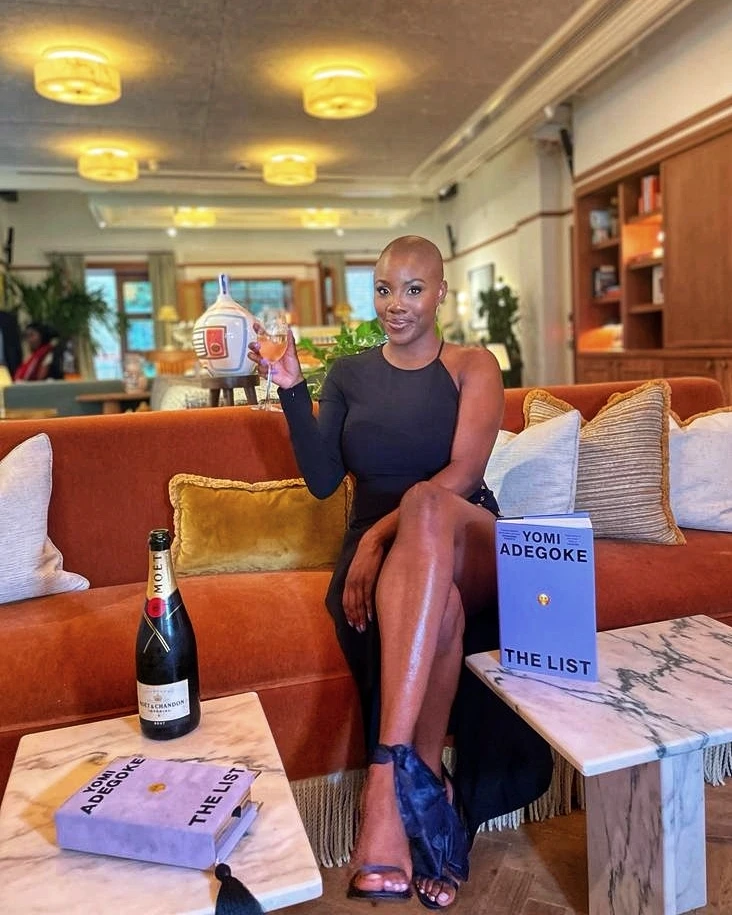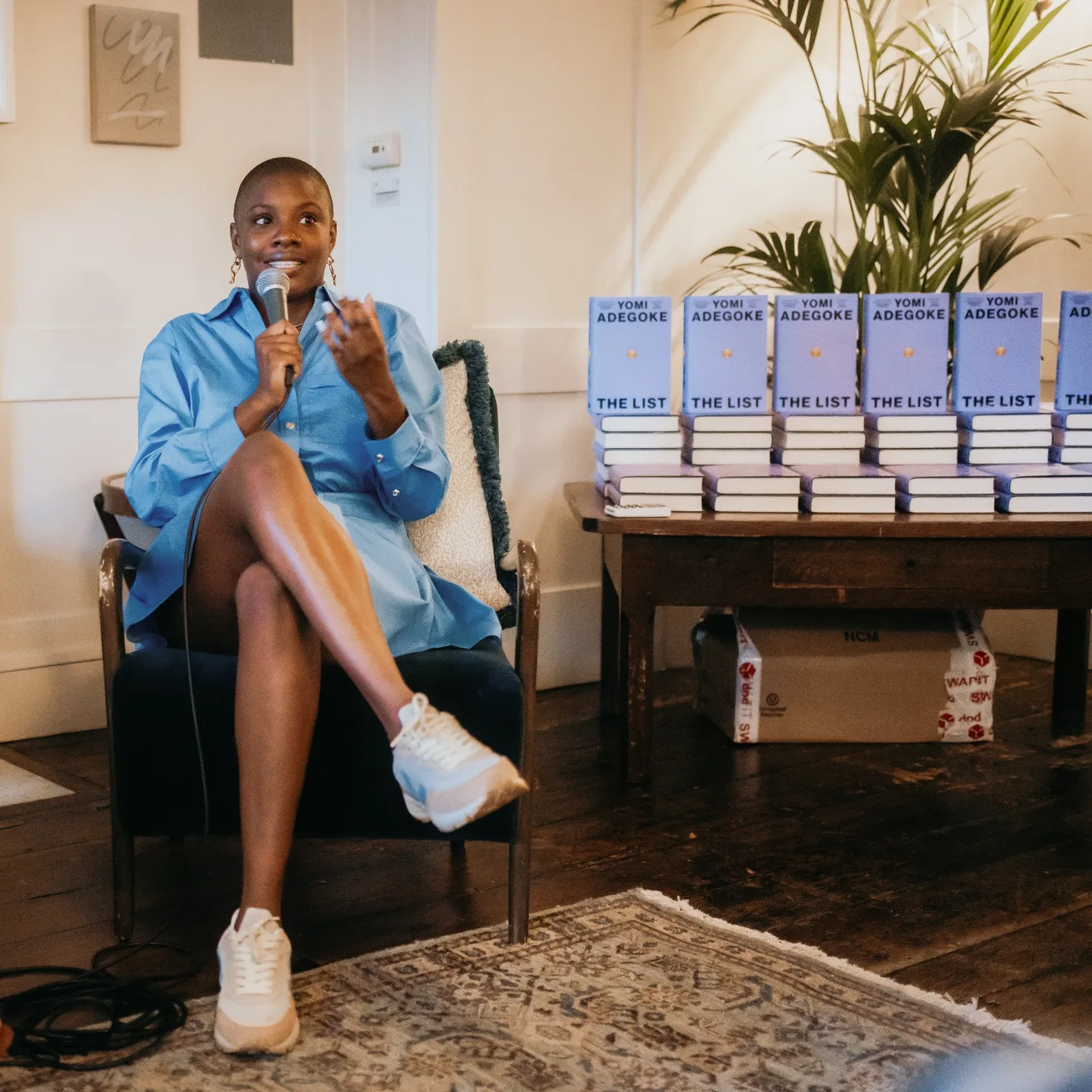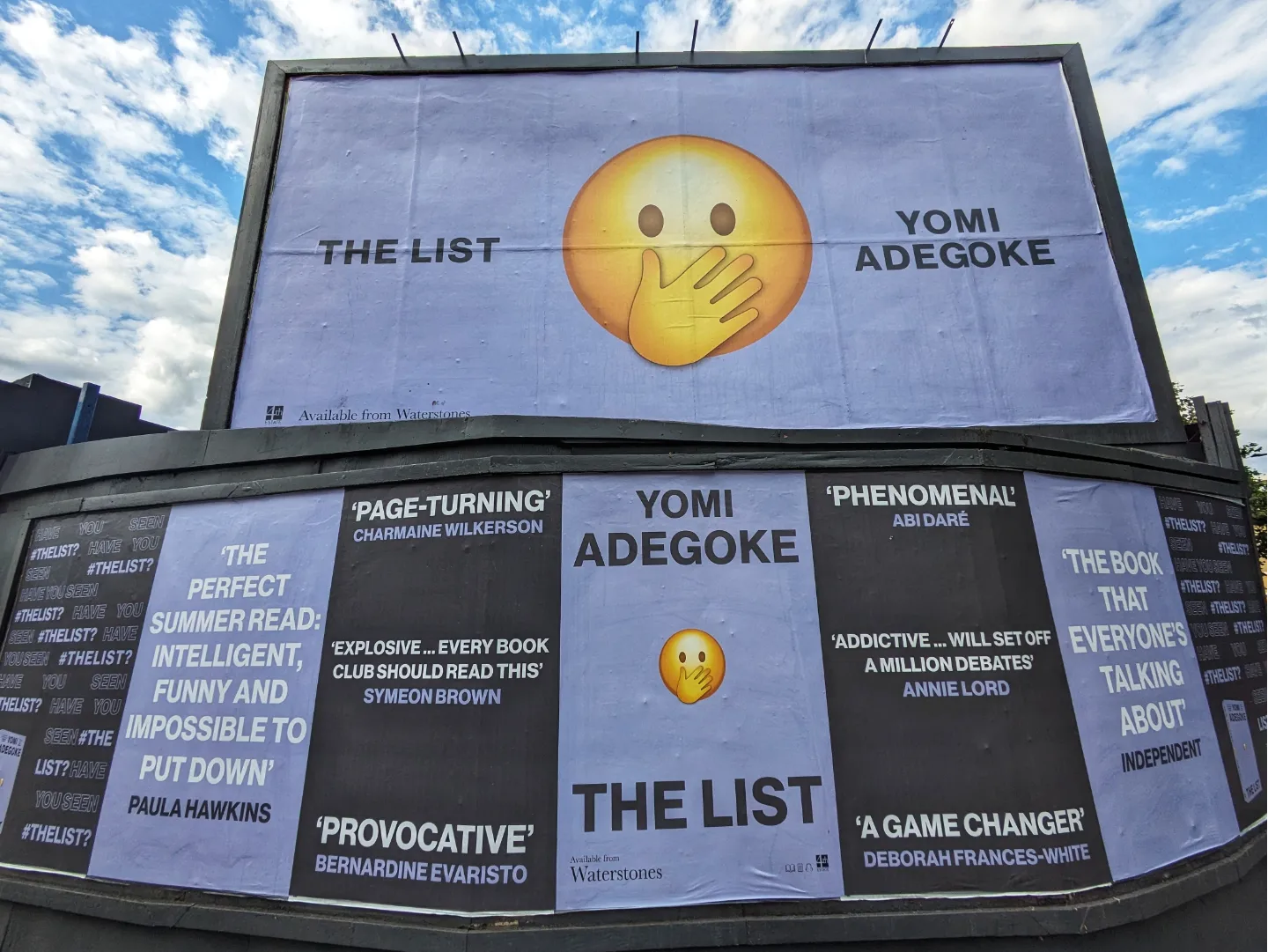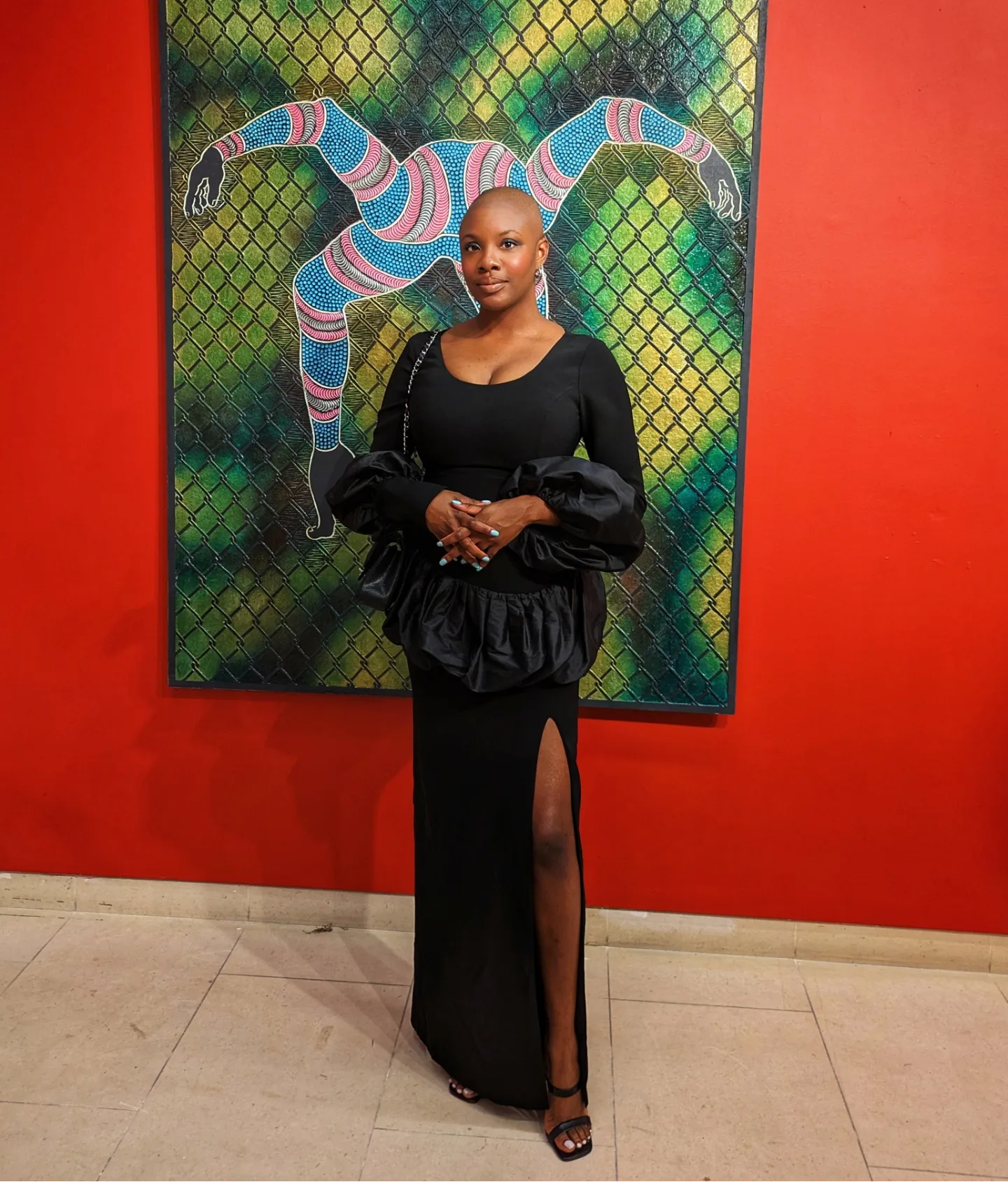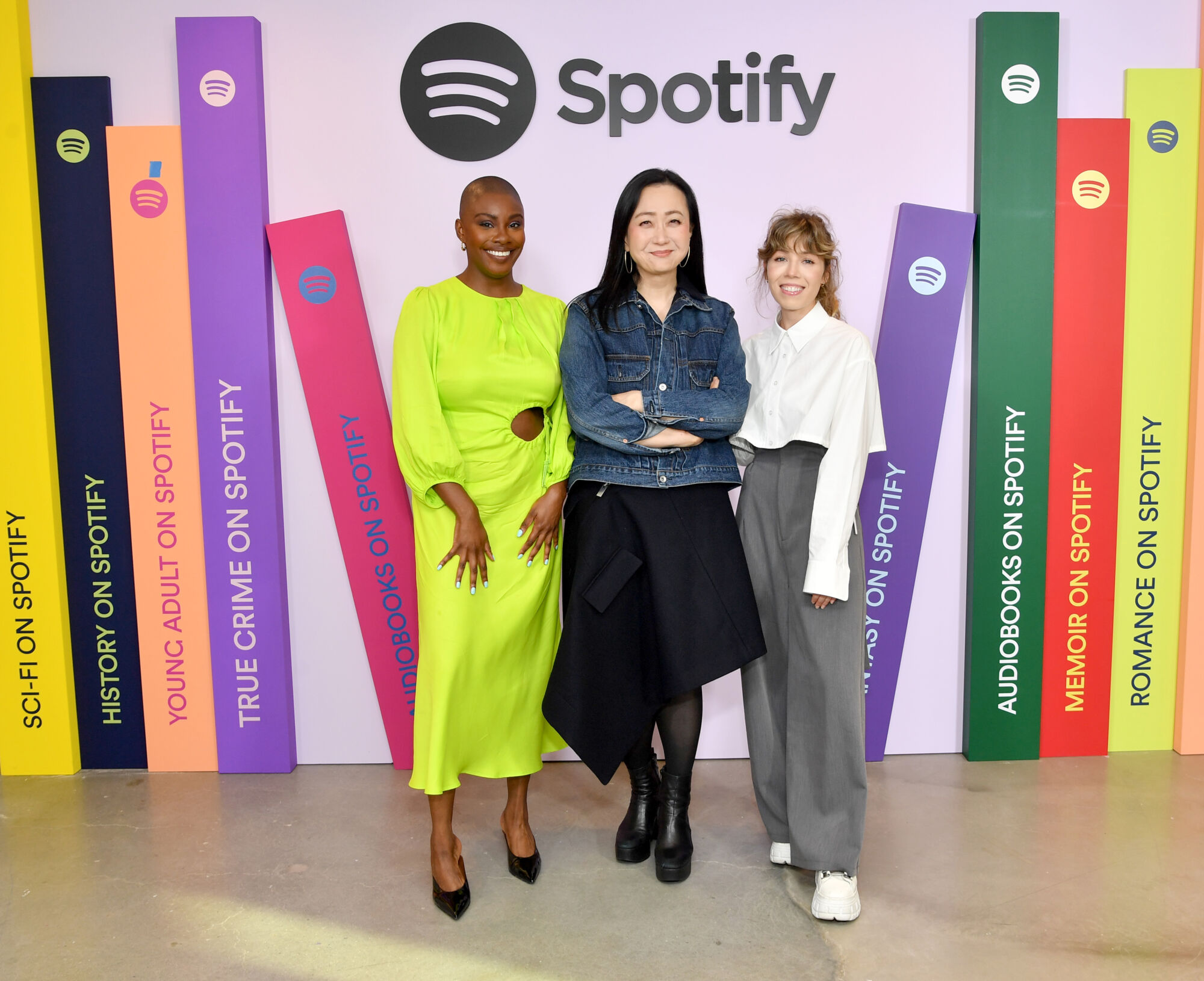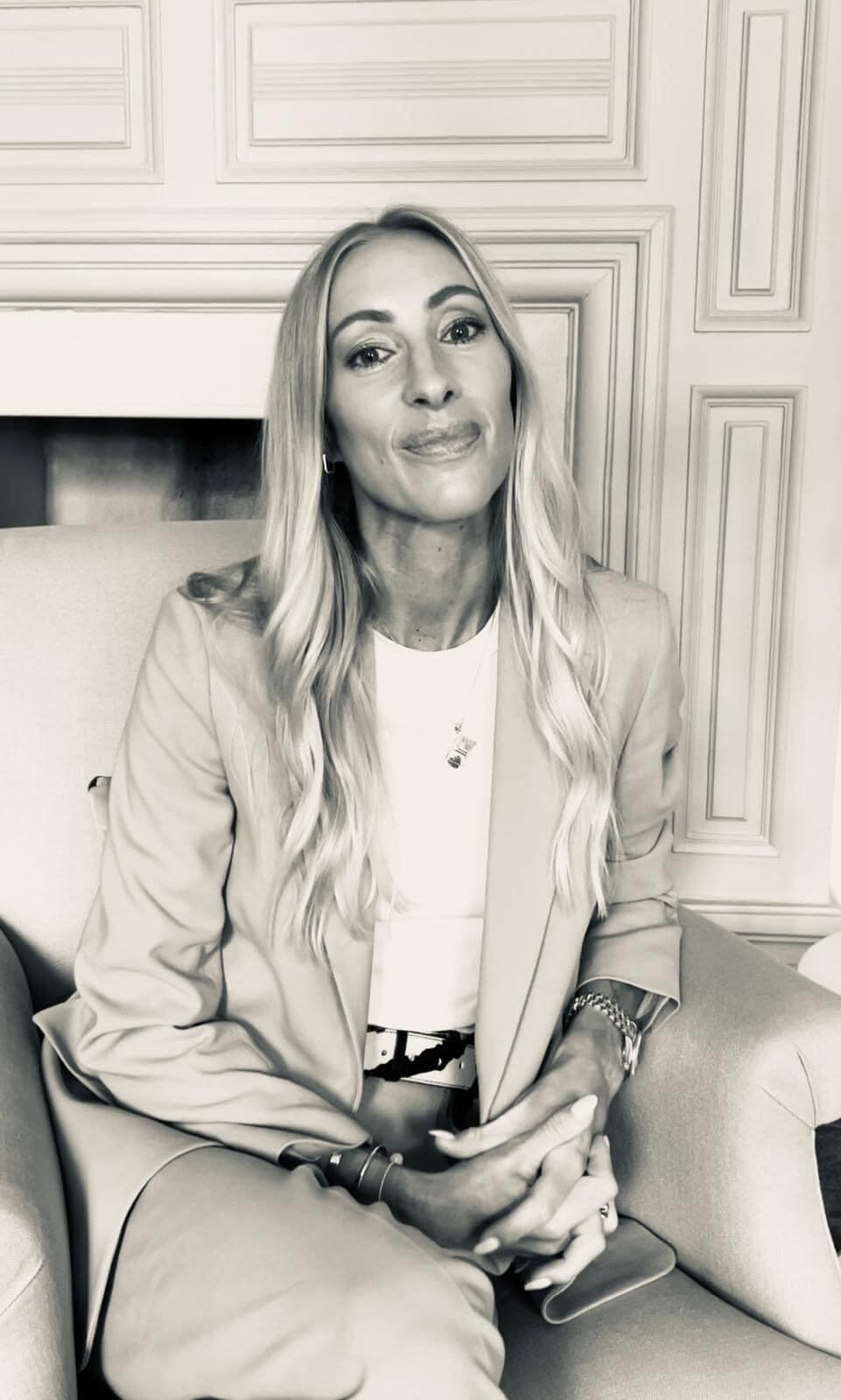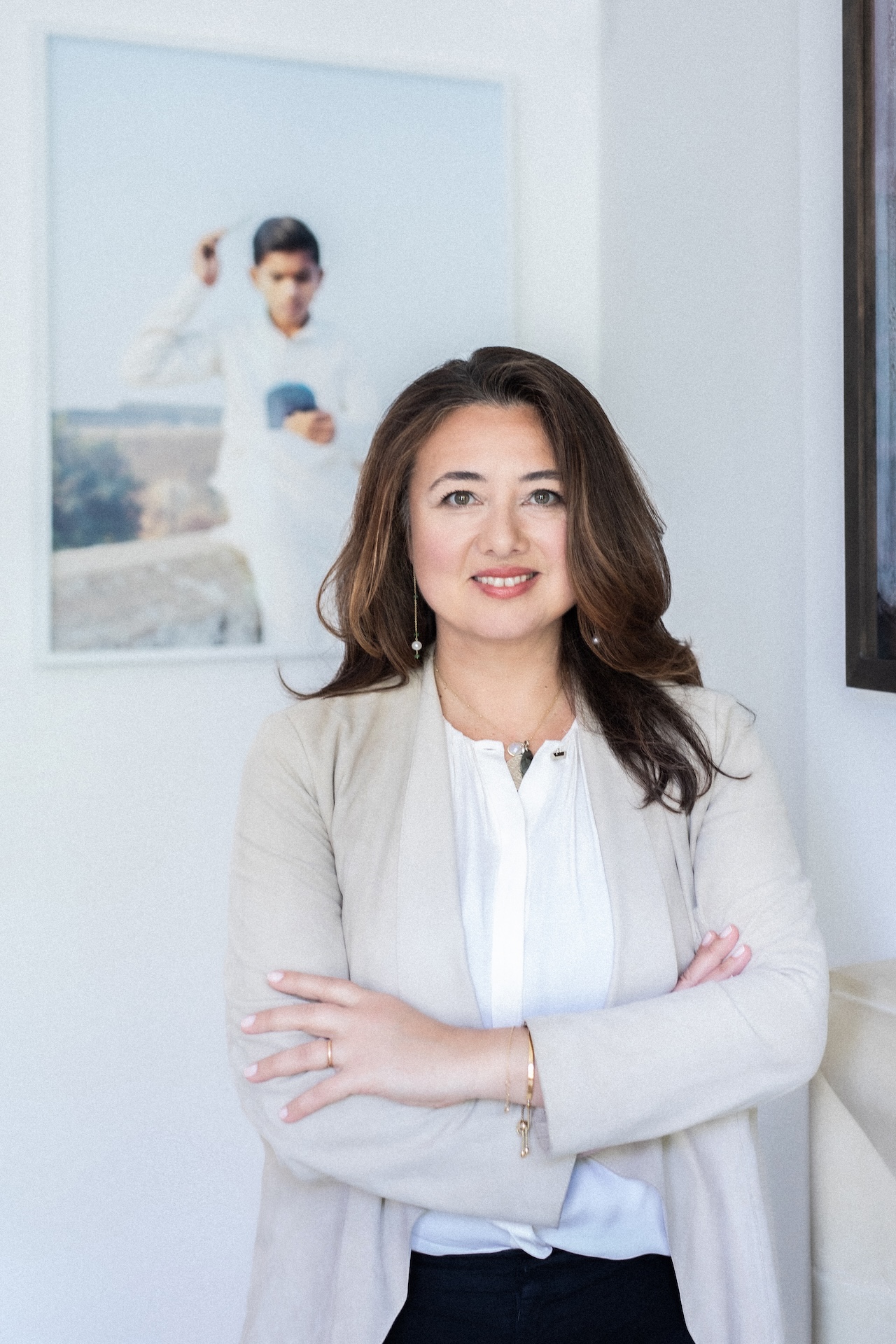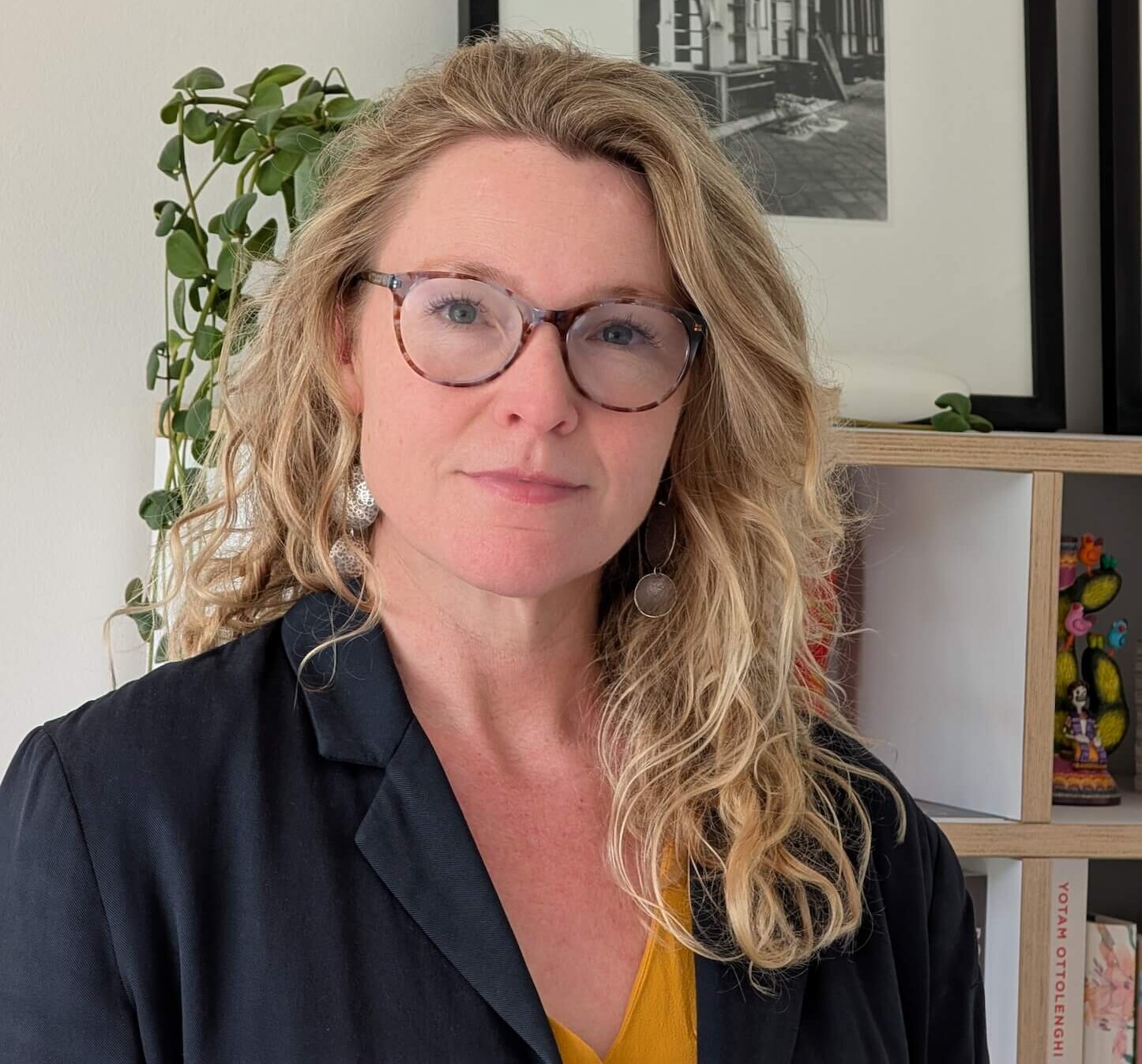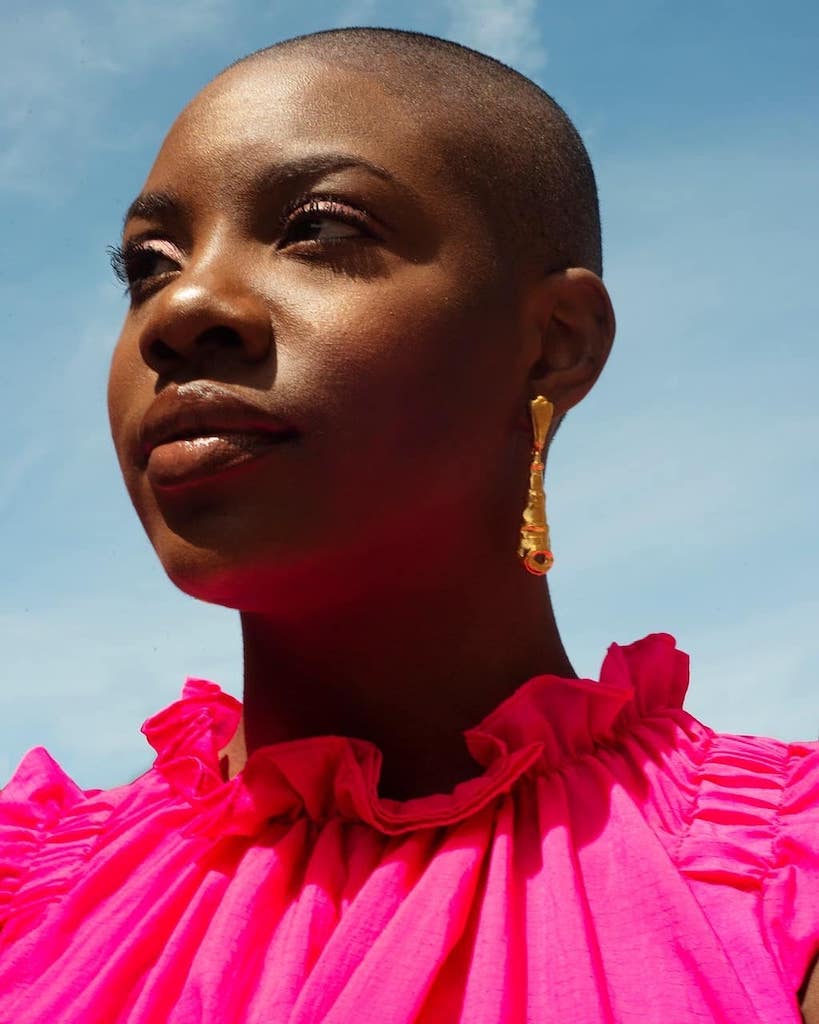

Interview Author and broadcaster Yomi Adegoke
As a columnist for The Guardian and British Vogue, we always appreciate Adegoke’s incisive point of view on culture and have been inspired and uplifted by her words many a time – it’s no surprise she was named one of London’s most influential people by the Evening Standard, and appeared on the Forbes 30 under 30 in 2021.
Adegoke, 32, trained in law, and her first foray into the media was via a magazine she set up for young Black women while she was still a student – before later turning to journalism as a way to shape the world she wanted to see. We caught up with Adegoke about her successes, challenges, and the books that shaped her personally and professionally along the way.
THE WICK:
You started a magazine soon after graduating, and later have been involved with trailblazing publications such as gal-dem. How do you see the place of magazines for young women today?
Yomi Adegoke :
I created Birthday magazine whilst at university because of the dearth of publications that focused on the black female experience. It was funded by two youth charities and I would hand it out in South London hair shops. At the time, the media was gradually getting more diverse with the launch of publications like gal-dem and Black Ballad too. Magazines that had previously been alienating eventually followed suit and became more inclusive. That being said, I fear we might have regressed, with the closure of game-changing outlets like gal-dem alongside a spate of other women’s magazines. It’s a worrying time for the industry and the future is uncertain, but I will say there are some great publications doing some amazing things – Elle has been utterly transformed under Kenya Hunt for instance, which is hugely exciting.
TW: You have a law degree – what made you want to work in the media?
YA:
I think a part of me had always wanted to work in the media but thought it was a bit of a pipe dream. Like many second generation immigrant children, I had quite a rigid definition of success growing up and the financial precarity of my childhood meant I sought career stability. Law seemed like a safe bet (my parents had told me I’d make a good lawyer, since I was so argumentative!) but once I enrolled, I realised it wasn’t my cup of tea. What I did enjoy however was the storytelling element of it, the crafting of a narrative. The skills I learnt during my degree were surprisingly transferable to journalism.
TW: Slay in Your Lane is a guide to life for black British women. What was the main change you hoped this book would make?
YA:
When Elizabeth Uviebinene and I co-wrote Slay In Your Lane in 2018, it was a very different, far less diverse publishing landscape. One of the things we wanted to see off the back of its release was an industry that was more reflective of the world we live in, and I would say it definitely played a part in helping that change come about.
One other thing I’ve always wanted however, was for the book to become irrelevant. For the things we talk about to no longer be the typical experience for black women living in Britain. The hope was that in the future, black women would read it in horror and disbelief at how different things were at the time of writing. I wanted it to become a relic and historical document, but unfortunately we have a long way to go before the experiences laid out in it are no longer commonplace.
TW: Your first novel, The List, came out last year, fast becoming a best-seller. What is your advice to anyone who wants to write a book?
YA:
Keep at it. ‘Done is better than perfect’ might be a cliche thing to say, but it doesn’t make it untrue! A lot of writers become paralysed by their perfectionism and it leaves them unable to move forward with a work, but there is a reason we have editors down the line who will help hone our writing at a later stage. The most important thing to do, is do.
“The most important thing to do, is do.”
